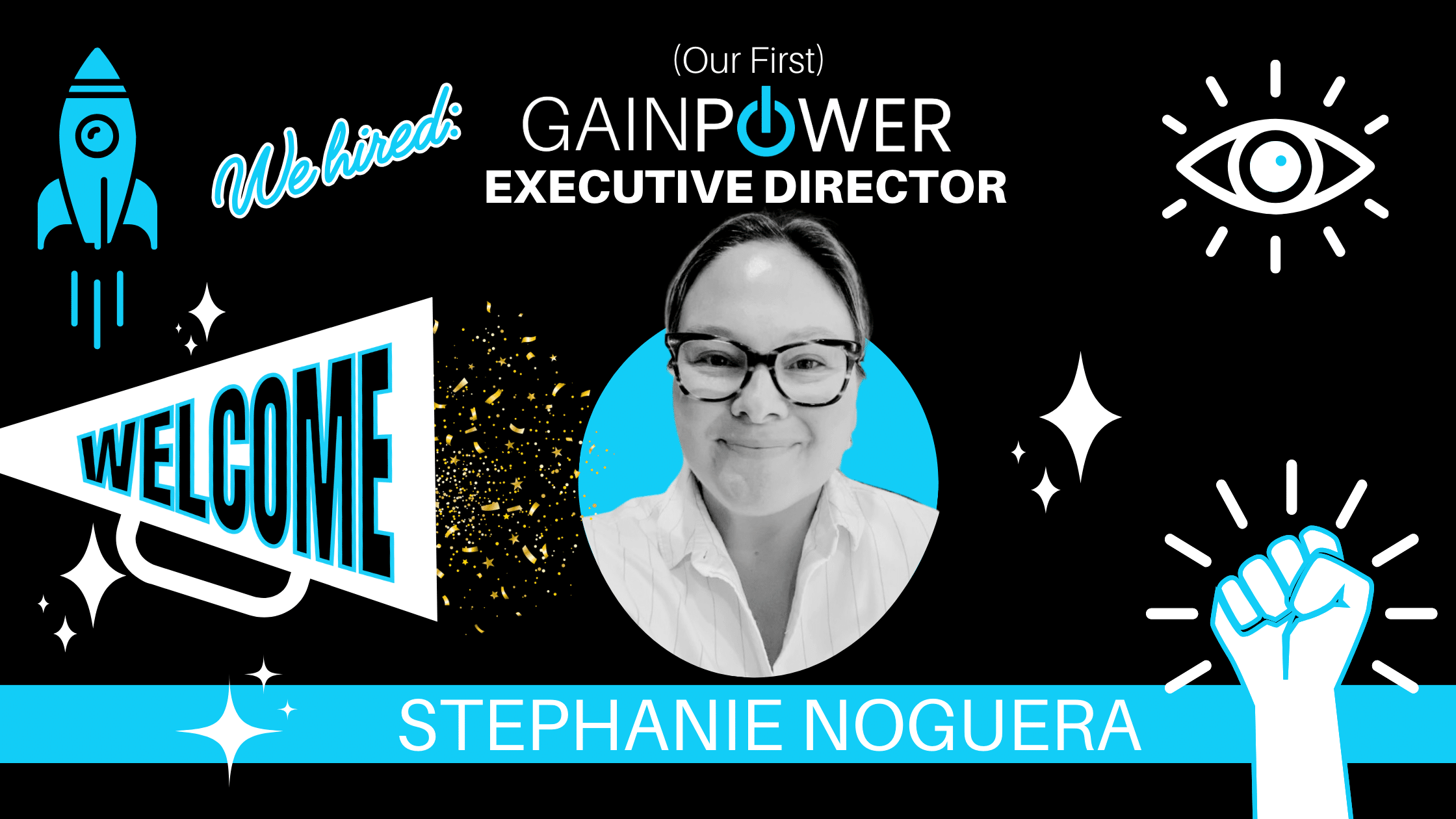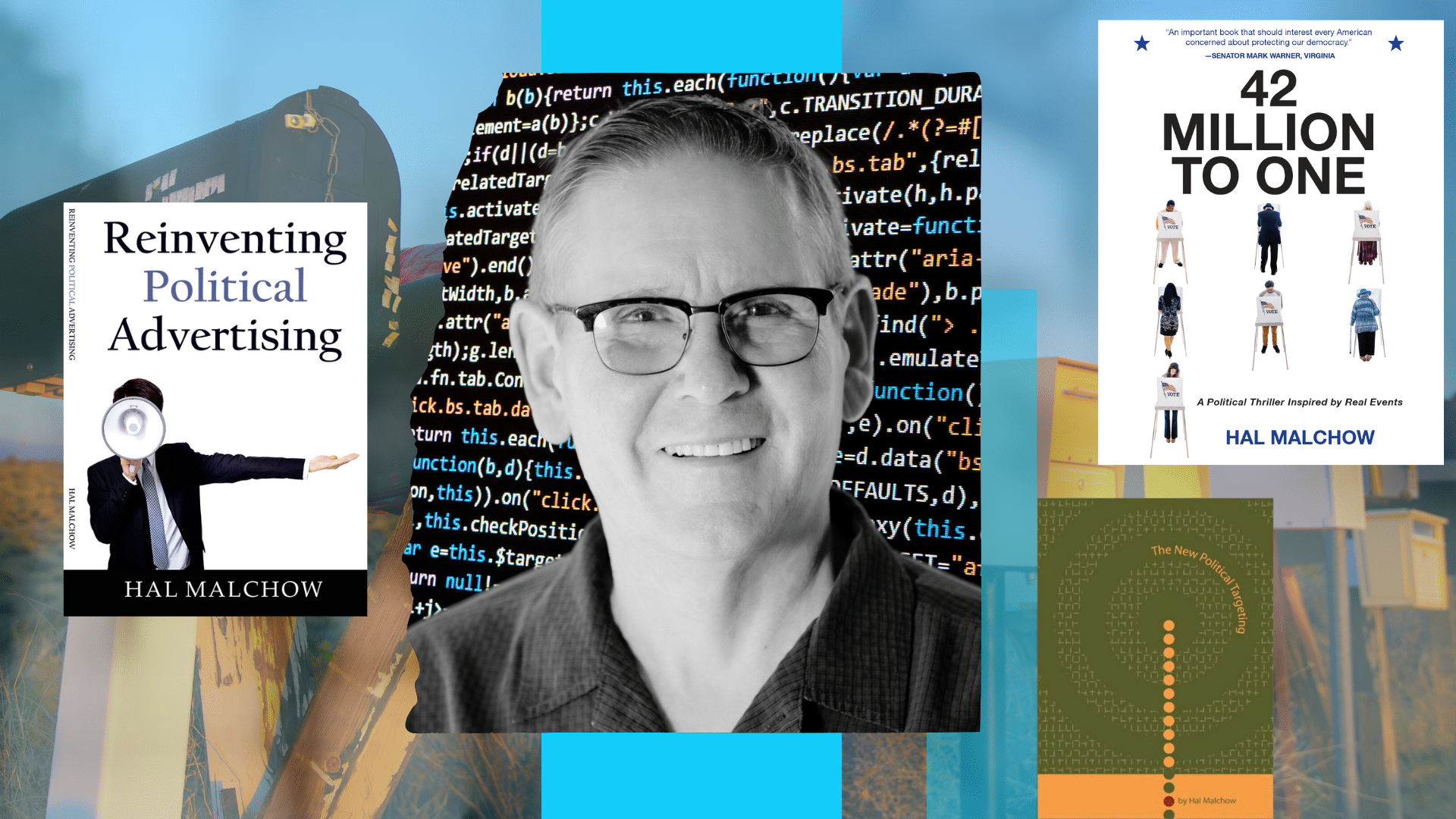Here at GAIN Power, we are always looking to spotlight different political progressives and changemakers. If you or someone you know would like to be nominated, please fill out this form!
This week we are proud to spotlight Stephanie Lopez, the Executive Director of Latinas Represent. Stephanie also has previous experience in international education, children’s rights, and immigration advocacy.
Can you give a brief background and introduction about yourself?
SL: I am the Executive Director at Latinas Represent, the only national, nonpartisan organization in the country that focuses on increasing the number and diversity of Latinas in public service. I am also a proud daughter of immigrants and a first-generation college graduate. I’ve always been interested in politics, and I think that has a lot to do with my family’s history in El Salvador, and because it was a topic, my family didn’t shy away from while I was growing up. Like many first-generation college students, I thought about becoming a doctor or engineer because it felt like the right thing to do. Still, I ended up studying politics and journalism. Throughout my studies and career, I’ve been lucky to have people in my life who’ve supported me and helped me navigate new systems and spaces, from my parents to my sister to mentors and colleagues. As a woman of color, I stand on the shoulders of those who came before me, and my goal is to hold doors of opportunity open for other people like me.
What does your day-to-day work look like?
SL: The day-to-day is different; no day is exactly the same. For example, in August, we hosted our Latinas Represent Master Class, our signature three-day intensive training program created by Latinas for Latinas. The Master Class is a lot of work from beginning to end. Still, I am eternally grateful to the amazing Latina and women of color speakers and trainers who are open to sharing their wisdom and experiences with Latinas interested in running for office.
In addition to that, the day-to-day also includes fundraising, managing partnerships and collaborations, and making sure that people are aware of the work that Latinas Represent does to increase the number and diversity of Latinas in public service. Our work focuses on three main pillars, which include programs like our Master Class, research, and storytelling to shift the narrative around who can and should be a public service leader. In all our work, we are intentional about being as inclusive as possible to ensure that Latinas from across the country with diverse experiences feel seen and heard.
Why did you specifically choose this line of work?
SL: My career path has been a winding road and I think that’s a beautiful thing that really speaks to the fact that people with diverse lived experiences have the potential to serve in leadership roles, whether in nonprofit spaces, like myself or even in elected offices.
Thinking back to my experiences, it genuinely feels like this line of work chose me. I grew up in Fresno, CA, the nation’s agricultural hub, and attended Fresno State, a Hispanic-serving institution close to home. Attending Fresno State was a great experience because of its diversity, which helped me feel like I belonged. This changed when I moved to the United Kingdom to study at the University of Cambridge. It was difficult to adjust to being in a different country with new customs and in spaces where I didn’t feel represented. There were many occasions where I was the only Latina or woman of color in a room, and those experiences marked me. I’ve always known Latinas to be powerful, intelligent, and courageous, yet when I looked around, I didn’t see us represented at institutions like Cambridge. I knew that this lack of representation wasn’t because of some inherent flaw but rather because we, as Latinas, lack access to networks, mentors, and opportunities, and I knew then that I had to do something about it. At the time, I was sure I would end up in academia and even moved to Ecuador to teach at a university for a few years.
Then, the 2016 election rolled around. Once the results were called, I knew I needed to return to the U.S. to support my community. I got a job in Washington, D.C., where I worked in immigration advocacy. At the height of the family separation crisis, I worked on a team dedicated to helping reunite families. I did that work for a few years. After the racially motivated El Paso shooting in 2019, I couldn’t shake the feeling that if there were more Latinas or more women of color in politics, maybe more would be done to protect our communities, which led me to Latinas Represent.
How does Latinas Represent impact the political climate we live in?
SL: We live in a time when Latinos make up nearly 20 percent of the U.S. population and are the fastest-growing demographic in the country; yet, we don’t have proportional representation in politics. Latinas, alone, make up nearly 10 percent of the U.S. population and are only 3 percent of elected officials at the federal and state levels, and that’s just unacceptable. This is where our work comes in. At Latinas Represent, we see leadership potential in every Latina, no matter their background, and we center their unique voices and experiences to get more Latinas into rooms where decisions are being made. We do this because we believe that Latinas have the power to transform their communities and our democracy with the right training and support.
This is also a question that we, as everyday people, voters, and community members, should also ask ourselves: What impact are we having in the political climate? Because if we want to live in a healthy democracy, we must do our part to ensure that our elected officials come from the communities they serve.
What is unique about your workplace?
SL: Our organization is 100 percent Latina-led, which informs all aspects of our work, from programs to research to storytelling. Our curriculum is grounded in the understanding that Latinas have incredible leadership potential and that our culture and heritage are assets that will help us on our political journeys. For most of our programs, we don’t have any formal requirements, which means that we accept and work with people where they are. For example, during our Master Class, folks were speaking in both Spanish and English, and some of it was translated, some of it was not. It’s always an honor to witness our program participants feeling comfortable and safe in the spaces we create. This is important for us because we want people to show up authentically, whether they are program participants, speakers, trainers, or partners.
Being Latina-led also means that we understand that Latinos are not a monolith, which means we can connect and meet folks where they are. This insight also allows us to educate folks about the diversity of races, ethnicities, nationalities, and experiences that makeup Latinidad.
What has been the most surprising thing you have learned since getting involved in progressive politics?
SL: One of the things that stood out to me when I first got involved in politics is that there are over 500,000 elected seats a person can run for in this country. Having done this work for years, I have found that many people just don’t know that there are so many different types of offices they can run for. It’s also important that folks realize that some of these positions are paid while others are not and that this influences the type of people who can run races and hold elected positions. I believe that greater transparency around elected officials’ salaries will help inform the political work we need to do to get more Latinas and women of color elected.
What are some of the toughest challenges you’ve faced at work?
SL: As a population, Latinas are underserved, undervalued, and underpaid, and that also translates to the nonprofit space. We’ve been lucky to find incredible supporters like The Ascend Fund, The League, Incite, and Pivotal Ventures, but fundraising can still be a challenge. When we look at the philanthropic space, organizations led by women of color receive less than 2 percent of all philanthropic money, which is tough to wrap my head around sometimes. Despite having a lean team, Latinas Represent has accomplished so much in the last few years, and there is even greater potential with access to more resources. Given this information, it’s important for folks to know that their individual support of women-led organizations is greatly appreciated.
What advice had you wished you had known about getting involved in politics? What advice do you have for others?
SL: I wish I had known that working in politics takes a lot of mental fortitude because you’ll be forced to navigate and operate in spaces that were not made for women or people of color. Even though the job can be hard at times, it is infinitely rewarding to be able to hold the door open for Latinas who want to have a positive impact in their communities.
Regarding advice for others, I’d say if you care about an issue and want to help transform your community, you need to get your feet wet. Maybe for you, that means attending city council meetings, calling your school board members, or attending one of our trainings. Trust that whatever step you take will set you up to understand the political system and your role in it. It’s also helpful to be reminded that it’s okay not to know everything when you get started. Don’t let fear stop you. Women, especially women of color, tend to feel like they have to check every box and know everything before they step into the unknown, but there’s no better way of learning than actually going through the process, and if you make mistakes, you’ll learn from those mistakes and keep pressing on. It’s what we do.
Lastly, for fun, if you could do another job for just one day, what would it be?
SL: I’ve always loved animals, so I would say a job that involves caring for baby animals or exploring nature.






